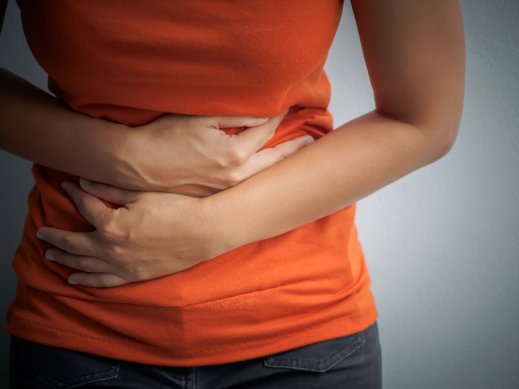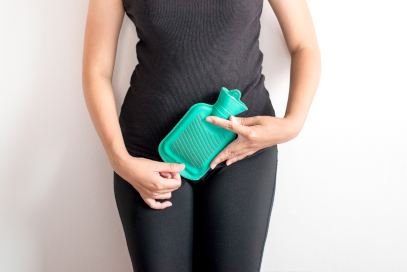I have polycystic ovarian syndrome (PCOS) and sometimes an ovarian cyst will start causing me a lot of pain. It can be extremely painful, but it's almost never a true emergency situation. People often go to the ER because the pain is so bad but other than treating the pain, but there nothing else the medical staff can do. Of course, you shouldn't suffer in pain if it happens to you and if you are in doubt about whether or not a cyst is the cause of your pain, then you should go. You're always better safe than sorry.
But if you don't want to go to an ER there are some things you can do at home to treat the pain. The information in this article is for informational purposes only and isn't intended to treat or diagnose any conditions.
1. Take an over-the-counter (OTC) pain medication.
You can find these at your local drug store. They can help with pain from cysts, even if one ruptures. They usually don't work as well as an opiate medication would but they do help reduce pain. You can take ibuprofen, naproxen, or acetaminophen. Be careful not to take too much. Many people think that taking large amounts will make these medications work better or faster. That isn't true and it can cause damage to your kidneys or liver. Make sure you only take the recommended amount as directed.
2. Use a heating pad.
Placing a heating pad on your lower abdomen can actually be as helpful as taking an OTC medication. If you don't have a heating pad, a hot water bottle can also be used. But you can find a heating pad at your local drug store or even online. If you have to you can make your own by placing a hand towel in hot water and then putting it in a large plastic zip-close bag and microwaving it for two minutes. Leave the bag open while it's in the microwave. When it's done seal the bag and wrap it in another damp towel. This should help the heat last for at least 20 minutes. This isn't as good as using an electric heating bad but it will work if you're really in a bind.
3. Take a magnesium supplement.
Magnesium can help with discomfort. If you can't find a supplement you can try eating almonds because they have high levels of magnesium (about 270 mg per 100 grams). In studies, people who included magnesium in their diets found it helped with chronic pain in general.
4. Soak in Epsom salts.
Taking a hot bath and soaking in Epsom salts can help ease muscles and stop cramping. This is a tried and true method that people have used for years. Just draw a hot bath and add two cups of Epsom salts. Let it completely dissolve before soaking for about 20 minutes.
5. Take dong quai supplements.
This supplement can help with cramping and pain. It's an ancient Chinese medicinal herb that's often found in supplements and teas. However, you shouldn't use it if you are pregnant, breastfeeding, have a blood clotting disorder, or are taking blood thinners.
6. Drink ginger tea.
This is another herb that can help. It's been shown to help relieve pain and cramps. It has antioxidant properties and is good for ovarian health. In one study, it stopped the growth of ovarian cancer cells, leading scientists to conclude it may treat and prevent ovarian cancer. You can find it in your local grocery store or order it online.
7. Changing your diet.
Obviously, this won't help the pain of a ruptured cyst, but it can help prevent the development of cysts in the future. About half of women with PCOS are overweight. Researchers think there may be a link between PCOS and insulin resistance, which makes it very difficult to lose weight. But avoiding foods that making insulin resistance worse can help reduce the symptoms of PCOS. These foods are highly processed and usually have high levels of carbohydrates such as:
potatoes
white bread
white flour (or anything made with white flour)
pastries
cake
muffins
candy
pizza
pasta
chips
Remember, experiencing an ovarian cyst can be extremely painful and if you feel you need to visit an emergency room you shouldn't hesitate to call EMS. But many women choose to treat the condition at home with these options first to see if the pain will resolve on its own before they seek help.
References:
Healthline.com. 11 Home Treatments for Ovarian Cyst Symptoms. Accessed at https://www.healthline.com/health/womens-health/ovarian-cyst-treatment-at-home on Sept. 2, 2018.
Medicalnewstoday.com. Home remedies for ovarian cyst symptoms. Accessed at https://www.medicalnewstoday.com/articles/321685.php on Sept. 2, 2018.





























